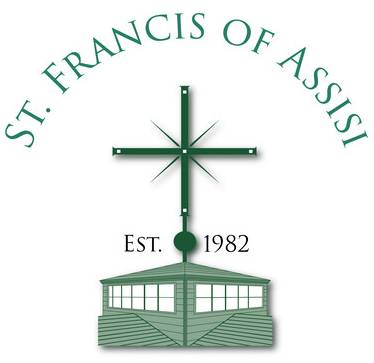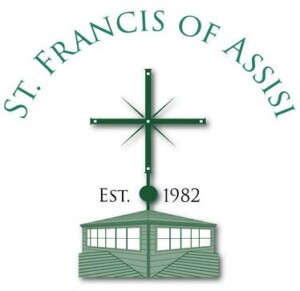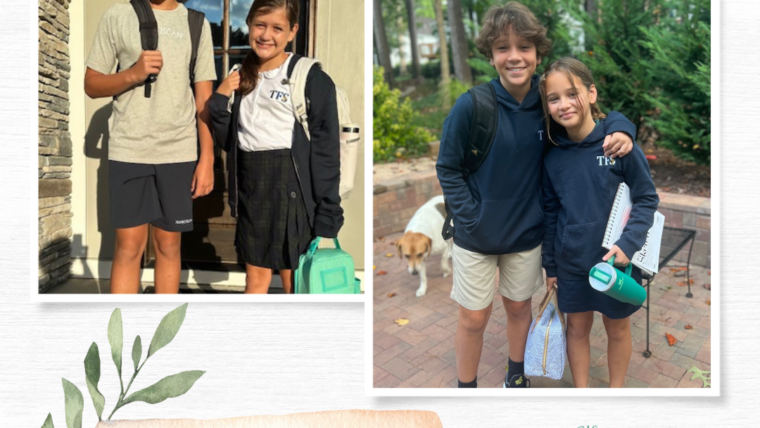JaVon Hansknecht joined the staff of St. Francis of Assisi as the Director of Justice and Peace in the summer of 2023, bringing an open mind and knowledge of the parish’s welcoming reputation, and for its supportive outreach to those in need. JaVon was now leading the effort to provide that outreach through the dozens of ministries under the Justice and Peace Office’s umbrella. Since the beginning of Father David McBriar’s tenure as our first Franciscan pastor at St. Francis, a tithe from the parish’s offertory, received through the generosity of our parishioners, has been provided to support the Justice and Peace office. Father David always made sure that the parish was looking outward in service.
JaVon spent his first year observing how things worked and how the parish provided support through Justice and Peace to various partner organizations. The Justice and Peace Tithe Committee was a small but dedicated group. JaVon says, “Only about 7 or 8 of us were on the committee. The practice was to find organizations independently, research them a little, add them to the list of potential recipients, and bring them to the committee. The committee would research them, see if they followed Catholic Social Teaching, and if they were in line with the parish’s mission.” The committee would then take some time to review each group’s efforts throughout the year. They might ask the groups to present to the committee, or a committee member might call them to do so. “After gathering all this info,” says JaVon, “the committee would vote on which organizations were the ‘best’ and rank them. We would then have a list of organizations, and we would take that list and see what funds we had from the tithe.” JaVon adds, “Donations could be as low as $500, but we funded those we could.”
“We would tell them,” JaVon says, “we like what you’re doing and want to support your work. The St. Francis Community would like to make this donation to you.” This process worked well for several years, but JaVon thought there might be a more inclusive way to provide support. “One of the big concerns in the beginning was,” explains JaVon, “if we are only listening or soliciting information from the organizations known to these 7-8 individuals, how do we hear of new or different organizations? How do they get on ‘the list?’ How do we talk with them and learn about their needs and make a space for them?” There seemed to be an assumption, based upon previous success, that the small group could find the best organizations for support through personal knowledge and informal referrals from others. “Also,” he continues, “with the old process, we would pick an amount to donate. We didn’t know what the funds would specifically be supporting, or if our funds were enough. We weren’t giving away huge checks, but we didn’t open up the opportunity for that kind of conversation.”
These concerns led to conversations around refining the process. JaVon proposed that there be a ‘Grant Committee’ with 10-15 people, consisting of a very diverse group as far as age and ethnicity. The chair of the Grant Committee would serve alongside the Director of Justice and Peace and be a member of the Finance Council in the interest of transparency and support, since the committee handled parish tithe funds. The new Grant Committee allowed for that larger conversation and a spirit of accessibility and broader community support. JaVon says, “Through the grant application process, we addressed specific questions about an organization’s needs and opened it up to any organization to apply.”
During the first year, the committee wanted to do an ‘educational year’ for the group to test the process. The goal was to run a test and then open the grant application to the public, giving as many organizations as possible the opportunity to come to us with their needs and explain their organizational goals. For this year’s first test run, to get our bearings and test the process, only the organizations we had previously funded were invited to apply. “We knew the pool would be smaller,” JaVon explains, “but they would be organizations we have had experience with, instead of a whole slew of applications from new groups. We knew they were all in line with Catholic Social Teachings, and this allowed us to work more slowly through the process to make sure the grant application process was efficient and gave us the information we needed.” The committee sent a private invitation to the 80+ organizations that have received support at some point in the past 5-7 years, and they received 51 applications in return. JaVon feels this was a good response and provided a good pool for testing the process.
“With the new process, we have all the info on the table in front of us, can do a deep dive into their current state, and maybe even gather information past what’s listed on their website, to know the ‘ins and outs’ of the organization and see specific programs we may want to fund,” says JaVon. “It allows us to communicate with the groups, to learn more about them and their programs, and their specific needs. The new effort allows the grant committee to take in that information and consider it, weighing it against Catholic Social Teaching, our Franciscan values, and other criteria that enable the committee to make the best possible decision to move our mission forward. We don’t know everything, or all that is happening in the community, but this application process allows us to get their name on the table and for us to get to know them.”
JaVon says, “A lot of the parish doesn’t know where the funds we receive go, and don’t know the grant committee exists, or that we offer funds to 30+ organizations a year.” “Our goal is to be transparent and allow our parish to know that through their generous contributions, we can assist ‘X number’ of organizations, and here is a list of these great groups we have been able to award that provide these great services in our community.” He plans to open the process to the public by sharing information through all the ‘media channels’ available at St. Francis, and also hopes to share information through the Diocese’s social media, online, and print resources. He has asked the organizations that St. Francis has previously funded to share the grant application process with any other groups that mirror our values and could benefit from our support.
JaVon is leaving St. Francis this month to move out of state, but his stewardship of the Justice and Peace Office has had an impact on both our community and him. “I would say I will miss this parish’s ‘urges’. For example, the ‘urge’ to promote our faith in everything we touch; the ‘urge’ to care for our families, friends, and even strangers within our parish walls, as well as beyond those walls, and having the courage to do so. ‘Urges’ to promote social justice and advocacy, even though the path is scary, blurry, and thin; we push forward, and that ‘urge’ carries us, this office, and the entire parish forward. I’m going to miss having an abundance of very passionate people who push forward with a sense of urgency.” We will miss JaVon, but we can honor his time here by sharing his and the Grant Committee’s efforts at outreach and engagement with the larger community through all that our Justice and Peace office does to spread our Franciscan values.







